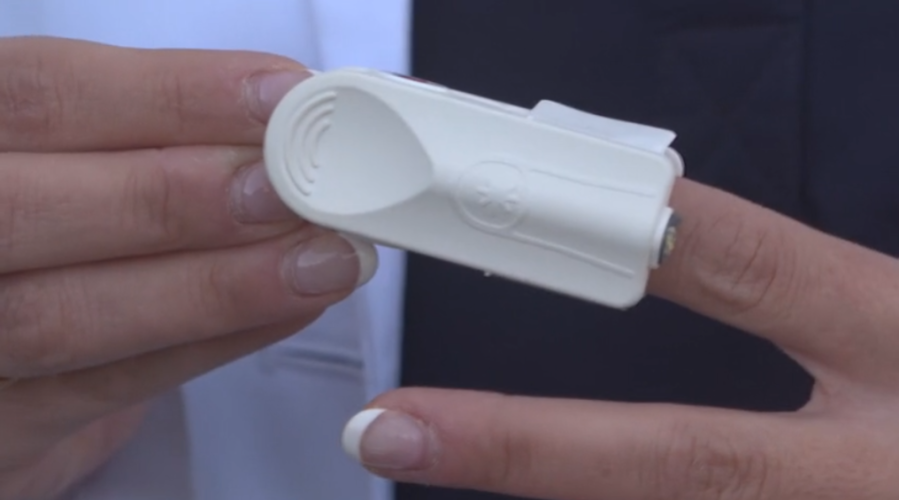As respiratory disease season descends on Southern California and cases of COVID-19, flu and respiratory syncytial virus (RSV) start piling up, experts suggest keeping a pulse oximeter nearby so you know when you should seek emergency medical care.
While hospitals are seeing more patients with respiratory illnesses, it’s nothing compared to the height of the COVID-19 pandemic.
“Back when people were quarantining and people were staying home, people weren’t really getting very sick with other respiratory illnesses,” Dr. Tanya Dall, an emergency room physician with Providence Mission Hospital in Mission Viejo, told KTLA. “Now, we’re not only seeing things like COVID, but we’re seeing the RSV, influenza, the adenovirus, the rhinovirus – all of that kind of stuff is coming back with a vengeance.”
Dall added that a lot of the advice around staying healthy is much the same as it was during the height of the COVID pandemic, including staying home if you feel sick and isolating yourself from others while you’re contagious.
She also said it’s extremely important to know when you might need to make an emergency trip to the hospital.
“One of the most important things that COVID-19 and the other viruses can do is it can cause pneumonia. It can actually affect the lung tissue, which makes it so that the body is not getting enough oxygen,” the ER physician told KTLA’s Chip Yost. “We do not want people to wait until it’s too late.
Dall said pulse oximeters, which are available over the counter at most pharmacies and extremely easy to use, can help people get medical attention before a respiratory virus creates even more health problems.

“What you do is you simply just put it on your finger if you’re having cough or cold symptoms or are short of breath and look for the number,” she explained. “There’s going to be a heart rate and an oxygen number that’s going to show up here.”
Normal, healthy oxygen levels are 98-100%.
“If you’re anything below 92%, you should come into the hospital and be evaluated right away,” Dall said.
Anyone with questions about the flu, RSV or COVID-19, including where to get vaccinated and how or when to test for COVID-19, can call the L.A. County Public Health InfoLine from 8 a.m. to 8 p.m. seven days a week at 1-833-540-0473. More information is available online or on the county’s COVID-19 website.





















